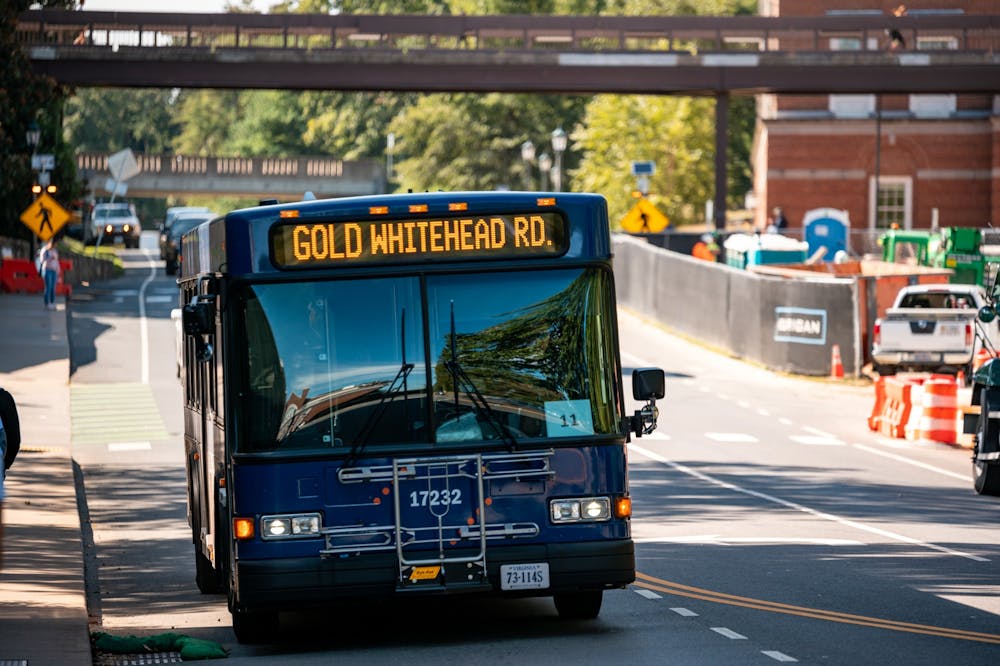A few weeks ago, the California Air Resources Board passed a regulation requiring all new cars sold after 2035 to be free of greenhouse gasses like carbon dioxide. This news is of particular significance as former governor Ralph Northam signed legislation in 2021 tying the state's energy policies to rulings made by the California Air Resources Board. In response to the recent regulation, however, Governor Youngkin went on Fox News vowing to stop the “ridiculous” state ban on gas vehicles.Youngkin already has the support of a Republican-held Virginia house and is expected to take action soon to detach our energy laws from decisions made by the California Air Resources Board. Currently, the University owns a fleet of facilities management vehicles, most of which are diesel. With the national debate centered around the state, the University must take this opportunity to commit to replacing all fleet vehicles with electric cars by 2030.
The University has said it is committed to change, vowing to reduce greenhouse gas emissions by 25 percent from 2009 to 2025. If University President Jim Ryan’s 2030 Plan is any indication, we hope to be heading toward a greener future here at the University. We have already begun to see the impact of Ryan’s commitment to a carbon-neutral University. After converting a portion of its fleet vehicles from gas to electric and hybrid options last year, the University received the Sustainable Fleet Accreditation, praising its efforts in paving the way for greener vehicles. However, Youngkin’s recent comments have cast a shadow of doubt over Ryan’s promise. The start of Youngkin’s term has been defined by controversial decisions at the University — despite Youngkin, the University must demonstrate a commitment to the tenets Ryan set out last year.
The idea of going electric is not appealing to most Americans, with 51 percent of consumers opposing the phasing out of electric vehicles in place of gasoline-powered ones. While consumers were able to recognize the undoubtedly positive environmental impact, nearly two-thirds surveyed believed electric cars to be too costly. This concern has merit, especially with most peoples’ introduction to electric vehicles coming from Tesla, a company not exactly known for its affordability. Many may be concerned at the idea of a public university spending money to purchase 13 seemingly more expensive vehicles. However, designing and selling electric vehicles has become a priority for seemingly every car company, with Nissan and Chevy planning to release affordable alternatives to Tesla’s this coming year. This makes outfitting a new fleet of facilities management vehicles much more feasible for the University.
It may seem like this is uncharted territory, but the University is not alone. This past summer, the city of Boston transitioned 20 of their school buses from diesel to electric vehicles in preparation for the new school year, making significant progress toward a goal of full electrification of their fleet by 2030. The University must take the same initiative as Boston and become the first public university to commit to full fleet vehicle electrification by 2030, a full five years before California’s ban would take effect. This would mean that the facilities management vehicles would just be the first step in a larger process of electrification of all University owned vehicles, including the University police cruisers and more.
Ultimately, fleet vehicles are just a small piece of the wide picture that is the University’s carbon footprint. It is encouraging to see that Ryan has taken an interest in changing the negative environmental impact the University has. However, there needs to be actionable change to prove that Ryan’s words are not hollow promises aimed at boosting the reputation of the University. The University already took the first steps toward the goal of creating a smaller environmental impact. We should transition the remaining gas-powered fleet vehicles, starting with 10 more vehicles over winter break.
Dan Freed is a Viewpoint Writer who writes about Academics for The Cavalier Daily. He can be reached at opinion@cavalierdaily.com.
The opinions expressed in this column are not necessarily those of The Cavalier Daily. Columns represent the views of the authors alone.







